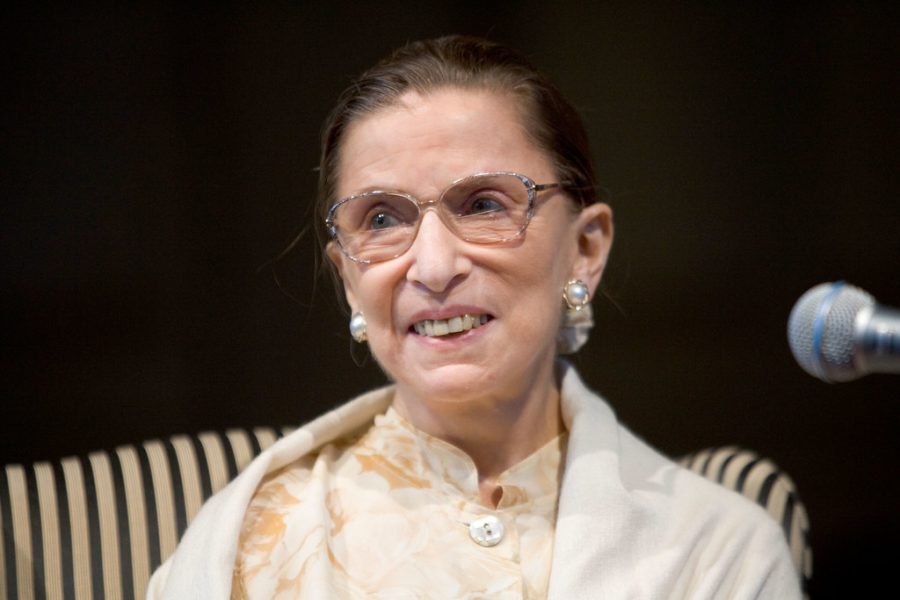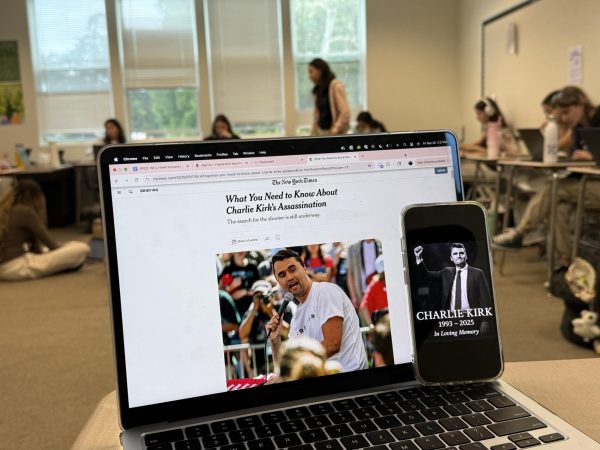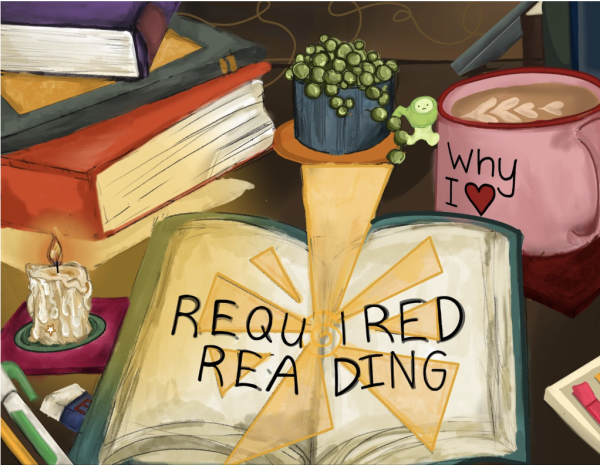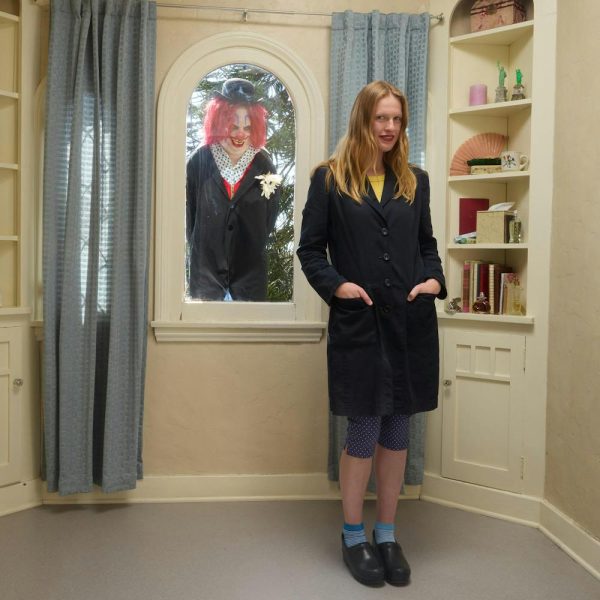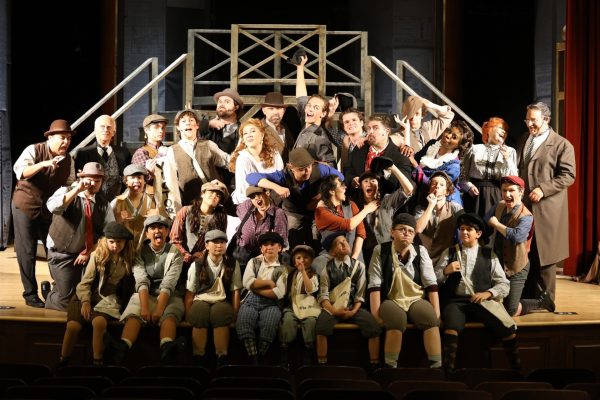Opinion: Ruth Bader Ginsburg, My Jewish Feminist Hero
Supreme Court Justice Ruth Bader Ginsburg
When my mom shared the news that 87-year-old Supreme Court Justice Ruth Bader Ginsburg had passed away, on Erev Rosh Hashanah, the eve of the Jewish New Year, I was intermittently slicing brisket and doing Latin homework at my kitchen table.
With the Supreme Court leaning further and further right and a presidential election looming, the political implications of Ginsburg’s death seemed to dominate the topic of conversation. Everyone from my parents to my cousins, with whom we were eating dinner over Zoom, to every columnist in the left-leaning newspapers I frantically scanned, fearfully lamented over her passing’s potential impact on the Supreme Court, women’s rights, and American democracy.
And in a sweep of political panic, typified by every 2020 drama, the focus shifted away from Ginsburg and her pivotal life and career as a Supreme Court superstar. Defying the odds and expectations of a 20th-century woman, she rose to fame as the second woman—and first Jewish woman—to serve in the Supreme Court, championing gender equality throughout her 27-year term and entire legal career. As a lawyer, mother, politician, and pop culture icon, Ginsburg served as an inspiration to generations of American women and girls.

While a fierce advocate for gender equality and minority rights, Ginsburg’s influence was hardly limited to her political career. She defied her time’s limiting stereotypes of women—Jewish women, in particular—and became a pop culture icon of real celebrity status in American society. With not only impressive credentials and professional success but a slew of products, internet memes, and, of course, iconic title—the “Notorious RBG”—to her name, she was easily the most culturally significant Supreme Court justice ever to be tattooed on comedian and SNL star Pete Davidson’s shoulder.
For me, Justice Ginsburg was a role model, embodying Jewish values and their commitment to social justice, community building, and making a difference. She came from the same world as my grandparents: the lower-middle class, Russian-Jewish New York of the 1930s and ‘40s, where she grew up reciting the same prayers, eating the same traditional foods, and even spending her teens as a counselor at the same summer camp where a family friend of mine still works. Her seat on the Supreme Court gave me an unmistakable feeling of familiarity and pride in Ginsburg’s Jewishness—momentarily forgetting that she was, allegedly, a terrible chef. I often find myself envisioning her as an almost grandmotherly figure, hunched over a steaming pot of matzo ball soup in her judicial robe.
Ginsburg’s Jewish heritage and values laid the foundation for her activism. She infused her life and political work with the Jewish concept of tikkun olam, the reparation of the world—a nonsectarian philosophy of making the world a better place through, among others, social justice and environmental action. “Growing up Jewish, the concept of tikkun olam, repairing tears in the community and making things better for people less fortunate, was part of my heritage,” Ginsburg commented in Jerusalem during a 2018 screening of her Notorious RBG documentary.
Shortly after the release of Ginsburg’s documentary, I was leading tours at the historical museum where I volunteer and spotted a woman in a “Notorious RBG” shirt, complete with a sketch of Ginsburg wearing her spiky, bejeweled “dissent collar” and a crown at a jaunty angle. I complimented her on it, and we ended up chatting about Ginsburg and our lives. It was an incredible moment of connection over shared values, experiences, and understandings, rooted in Ginsburg’s presence as an icon of liberal values and progressive Judaism.
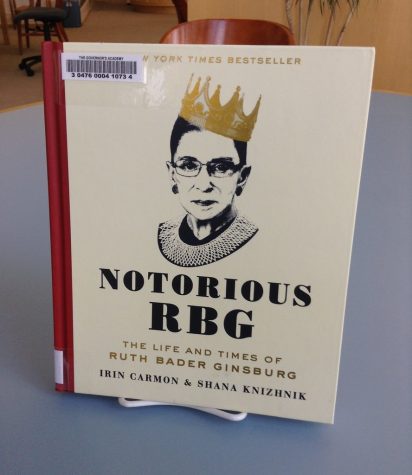
In 2018, LA’s Skirball Cultural Center, a museum devoted to sharing Jewish heritage and American democratic ideas—essentially, the crossroads of Ginsburg’s interests and values—featured an exhibit in conjunction with the release of the Notorious RBG film. While covering her career and celebrity status (one wall featured nothing but her fabulous quote, “I’m not ‘queen’…I’d rather be notorious”), it also focused strongly on Ginsburg’s Jewish background, featuring clips from interviews with her grandchildren, who lovingly referred to her as their “bubbe,” Yiddish for grandmother, and pictures of teenage Ginsburg acting as the “Rabbi” at her Upstate New York summer camp.
For me, and for the many other young Jewish girls wandering that exhibit, it was proof that we, too, could have big dreams, aspire, change our world, and do it all while staying true and committed to the traditions and values of our community. Ginsburg was a personal inspiration, modeling Jewish values and demonstrating what a great impact they could have on the world stage. Justice Ginsburg worked tirelessly throughout her life and career to improve our nation through tikkun olam, paving the way for others—including me—to do the same.
May her memory be a blessing.

Ilena is passionate about stories— especially histories— good snacks, and bad puns. She has been on Spyglass for a very long time. Ilena is a senior.




























![Dr. Zanita Kelly, Director of Lower and Middle School, pictured above, and the rest of Westridge Administration were instrumental to providing Westridge faculty and staff the support they needed after the Eaton fire. "[Teachers] are part of the community," said Dr. Kelly. "Just like our families and students."](https://westridgespyglass.org/wp-content/uploads/2025/03/dr.-kellyyy-1-e1748143600809.png)






















